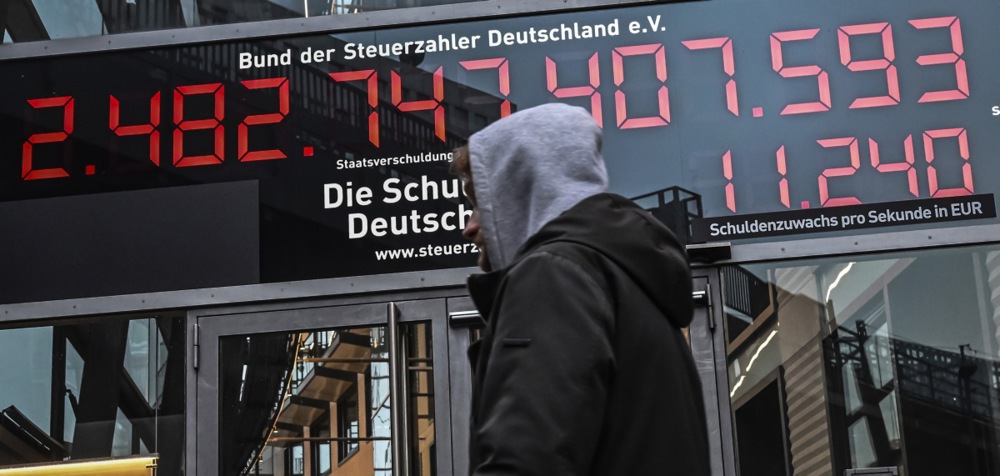François Villeroy de Galhau, Governor of the Bank of France, has demanded left-wing policymakers “face reality” and understand further hikes in French spending are infeasible.
Speaking on July 11, the bank chief said it was time to move away from political discourse and tackle France’s worsening economic situation, cautioning against implementing measures that could lead to “excessive labour costs” for businesses.
“Not everything will be possible right away,” Villeroy de Galhau warned on FranceInfo.
The New Popular Front alliance of Left and hard-left parties has proposed an economic programme that includes a lowering of the pension age, more social benefits and higher minimum wages.
The IMF has challenged the French Government’s projections on future public debt, estimating that the country will end up running a significantly higher deficit than Paris is predicting. https://t.co/i9ZHAMGowY
— Brussels Signal (@brusselssignal) May 24, 2024
Villeroy de Galhau said those plans were not feasible.
“I note that if our fellow citizens have sent a strong message in this election, it is their concern to be better respected, better considered and better respected, it is also to tell them the truth,” he said while emphasising the Bank of France’s commitment to political neutrality.
“We must be honest and acknowledge the realities we face.”
De Galhau stressed two “golden rules” that should be observed by the new regime.
“Do not widen deficits and do not make doing business more expensive,” he said.
“Our companies cannot be weighed down by excessive wage costs, including the minimum wage, and by taxes that are too heavy, it would be very bad for employment immediately and very bad for purchasing power in the long term.”
The Federation of Independent Workers claimed earlier that an increase in the minimum wage to €1,600 per month net would be a major burden to bare, the Federation of Independent Workers claimed earlier.
“Including social security contributions, this would add €530 to €540 per month, meaning for an entrepreneur with three employees, an annual additional cost of €18,000,” the body stated.

France’s deficit is the second-highest in the European Union, only lower than that of Italy.
In 2023, France had a deficit of 5.5 per cent of GDP and a total debt of 110.6 per cent of GDP.
That has increased borrowing rates for France.
Deficits “weigh on and cost us more and more to finance and they weigh on our sovereignty,” Villeroy de Galhau said.
On June 19, the European Commission initiated an Excessive Deficit Procedure (EDP) against France and six other Member States.
EC launches Excessive Deficit Procedure against seven Member Stateshttps://t.co/uoDox2jjLk
— Brussels Signal (@brusselssignal) June 19, 2024
According to Villeroy de Galhaun, the political changes caused an unprecedented “shock of uncertainty”, which could prove to be “very negative for growth and employment”.
Bloomberg calculated that France needs to cut back €15 billion per year to be in line with EU demands. This can only be found by extra revenue and lower spending.





